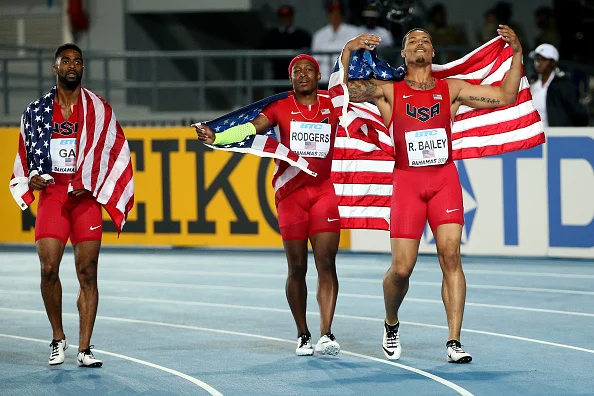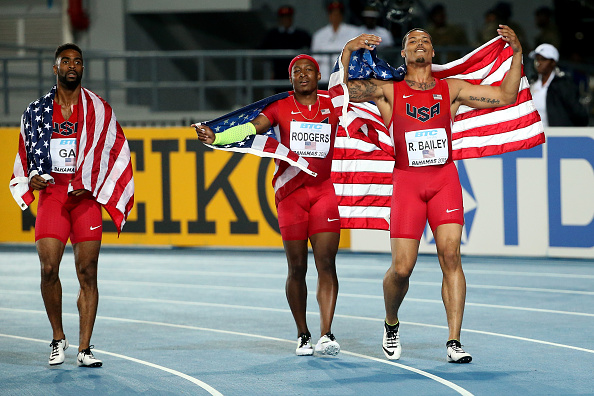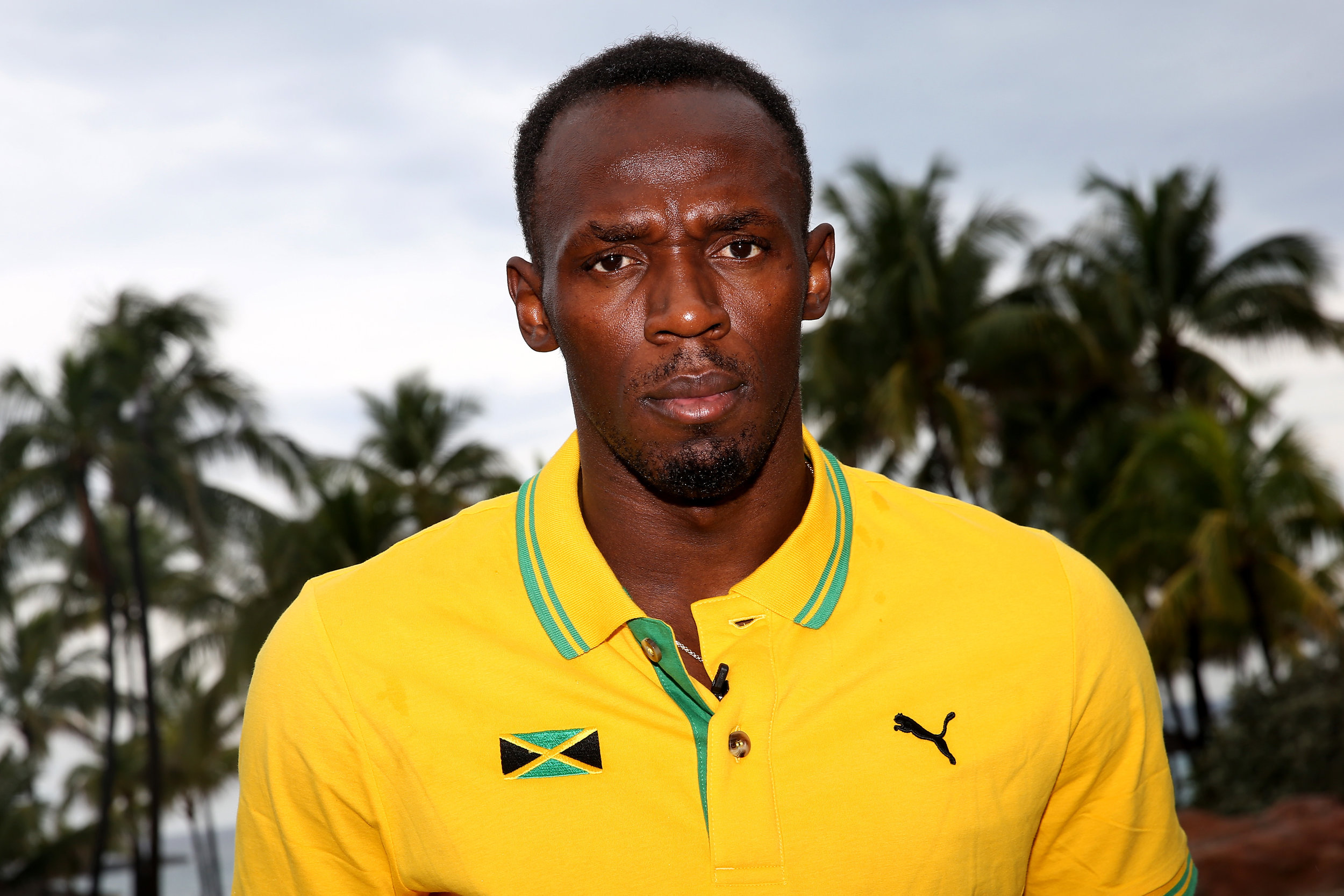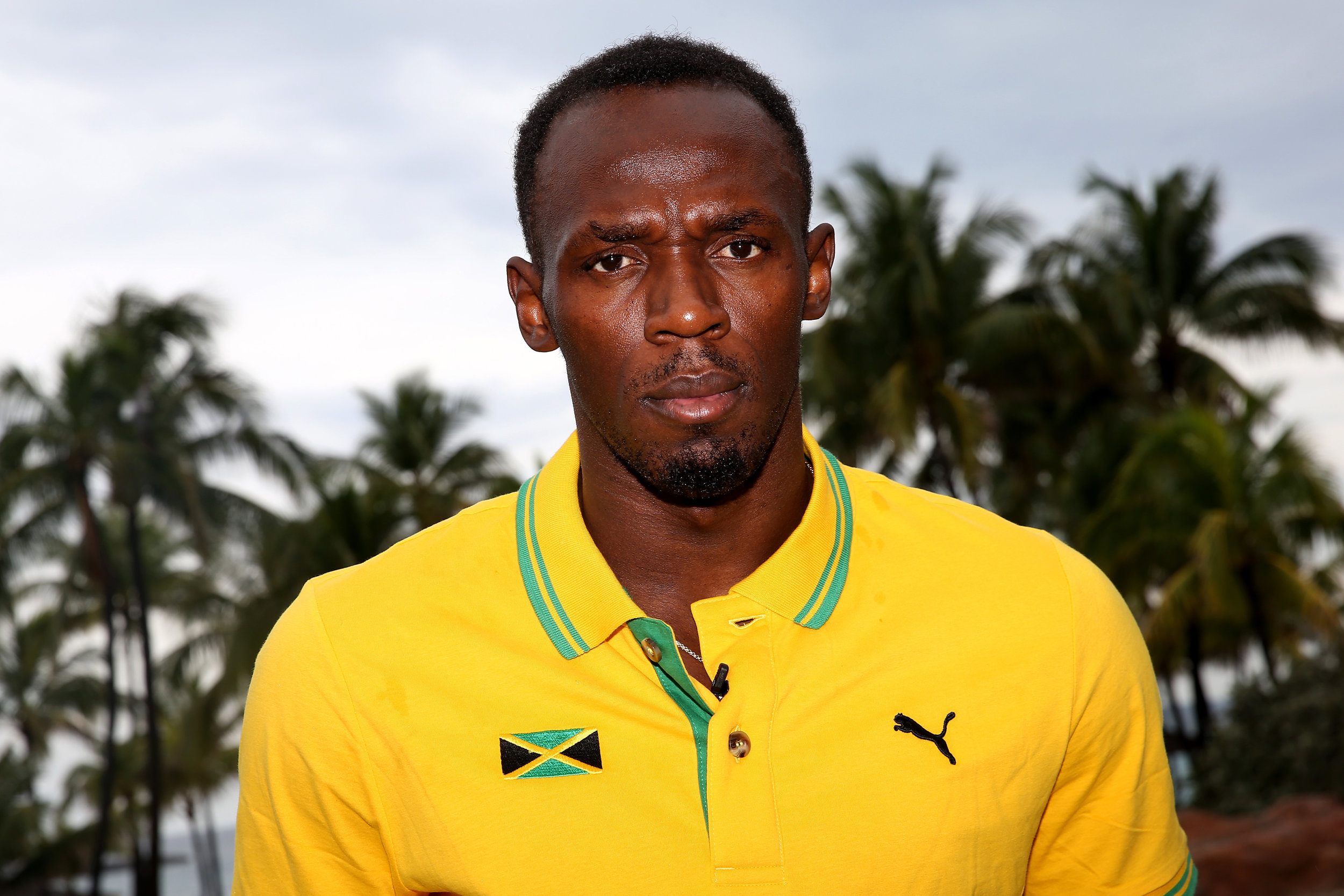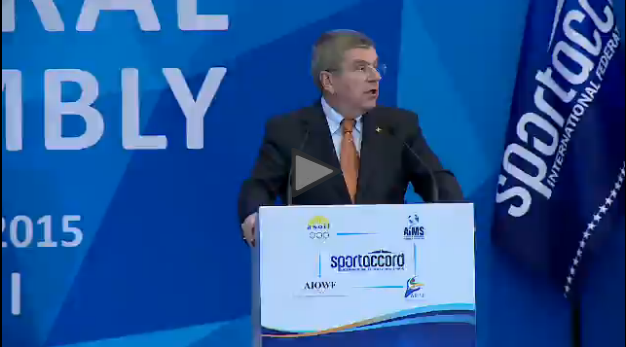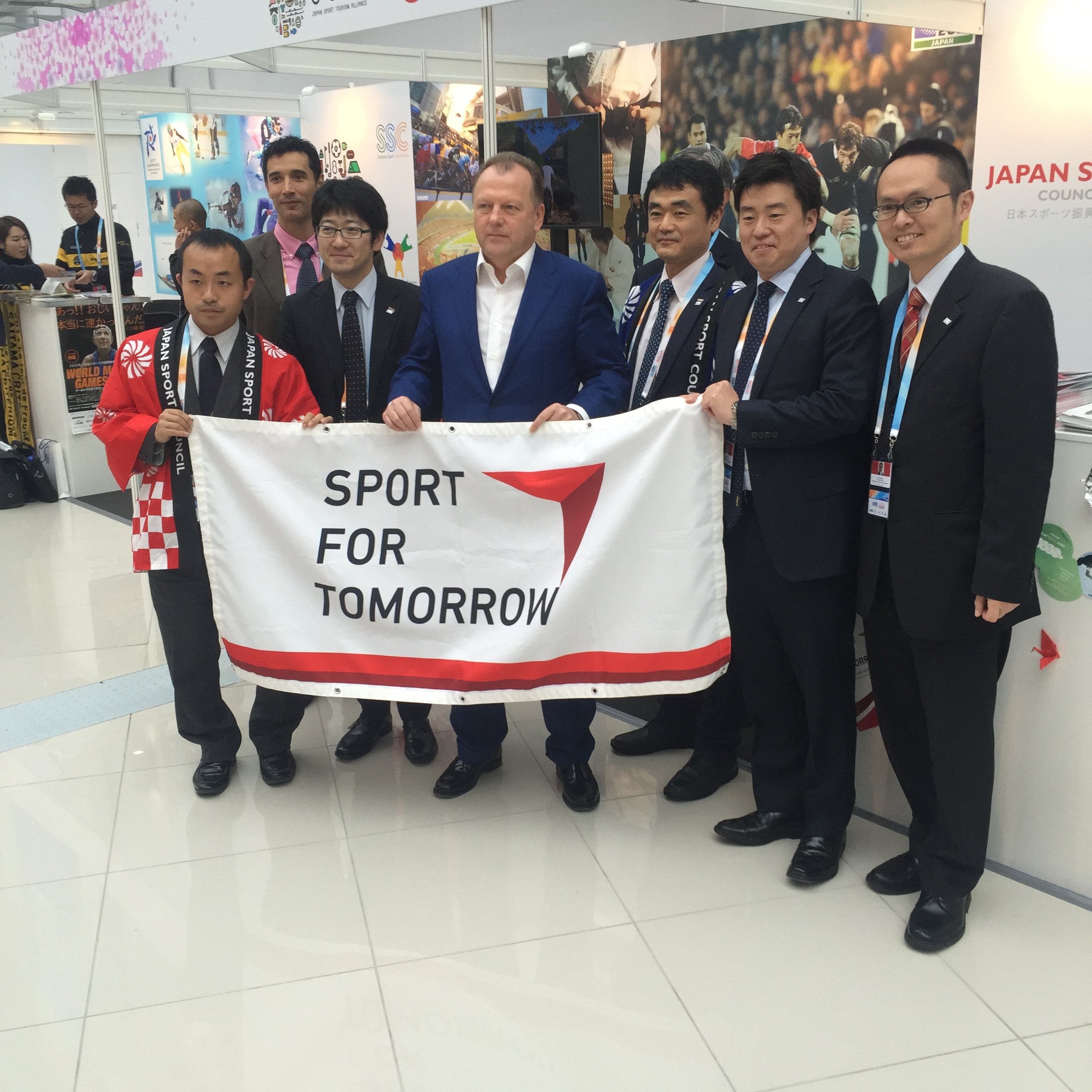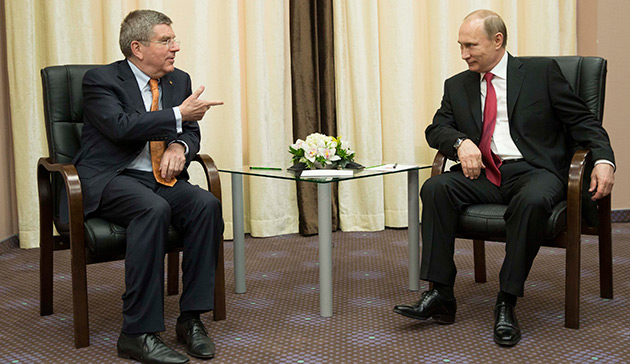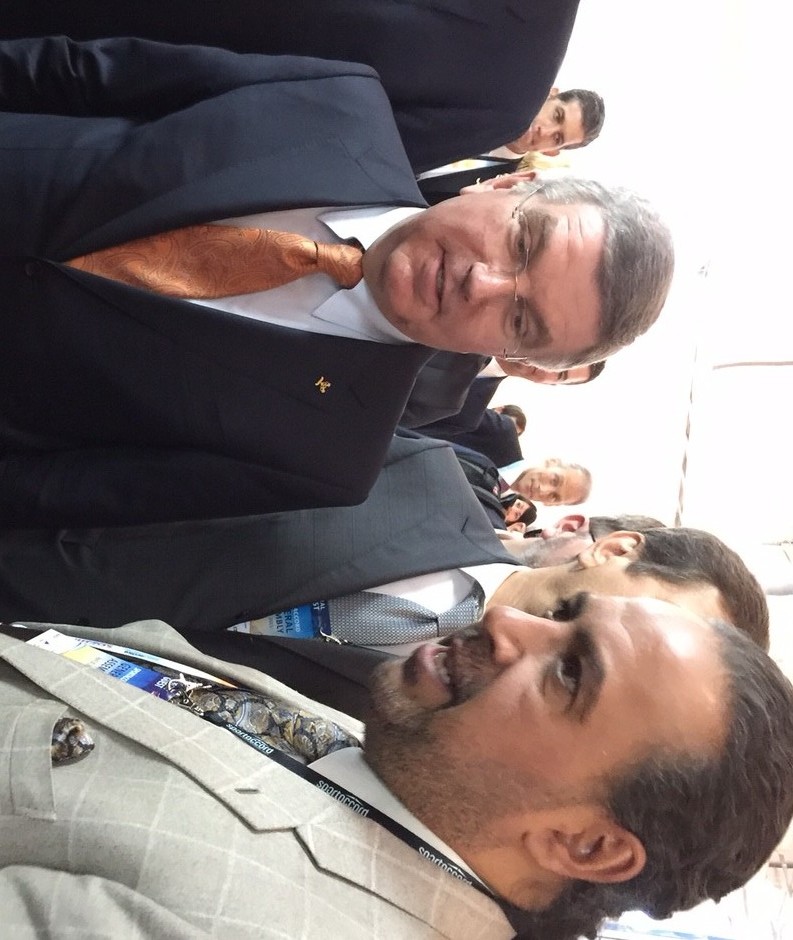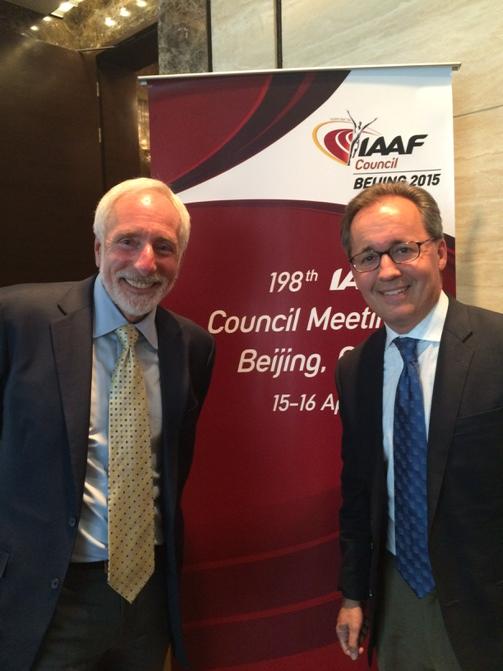The U.S. Olympic Committee should yank the 2024 Olympic bid from Boston, and now. This is a bad situation. It's almost guaranteed to get worse.
The damage to the USOC’s brand and its future is verging toward grave, and that would be intolerable to anyone who thinks reasonably and cares about the Olympic movement in the United States of America. Doubling down on Boston would be a very, very bad bet.
The USOC has spent the past five-plus years, since getting kicked in the pants in October, 2009, when Chicago was booted in voting for the 2016 Summer Games, tirelessly working to rebuild its brand, particularly internationally, working on person-to-person relationships and building goodwill. Now, in the space of not even three months, the whole thing is devolving perilously.
Since picking Boston for 2024, it has become abundantly plain to everyone behind the scenes that the Boston bid seemingly sold the USOC a bill of goods; that it has become all but impossible for the bid to recover from the hole in which it now finds itself; and that the only way out for the USOC, despite the pain, is to admit it made a mistake, dump Boston 2024 and assess its options.

One option is to sit out 2024 entirely.
Again, the hole is deep. This has to be acknowledged.
At the same time, it’s still early in the 2024 process, and 2024, for a variety of reasons, should be the Americans’ time. Emphasis: should.
That’s why the better option would be to take a cooling-off period, say 60 to 90 days. After that, the sensible thing would be to do what the USOC should have done in January: make Los Angeles the bid city.
The only way that works, however, is to declare Los Angeles — which it rightfully is — “America’s Olympic city,” and to make it plain now, in 2015, that LA will be the bid city for 2024, and if a 2024 bid falls short, for 2028.
The International Olympic Committee tends to like humble second-time bids, a strategy that has not been the American way.
A cooling-off period, meanwhile, would give the USOC and LA leaders a chance to strategize — about everything from communications to finance to finding an entirely appropriate role in the bid for Anita DeFrantz, the senior IOC member to the United States.
If Agenda 2020, IOC president Thomas Bach’s purported reform plan, means anything, it means creativity and flexibility — the right to implement change to protect your brand and, most importantly, your athletes.
Right now, you’ve got a majority of the people of the city of Boston saying, in essence, we do not want the athletes of the world to come to our city. They may not know that’s what they’re saying. But in Olympic-speak, loud and clear, that is what they are saying.
If I am the USOC, that is not who I want as my partner.
Starting place in assessing 2024: there are big-picture, and conflicting, data points.
One, the Summer Games have not been been in the United States since 1996. Also, NBC just paid $7.65 billion for the U.S. TV rights from 2021 to 2032. The first Summer Games? 2024.
Two, Bach is German. During his term as IOC president, which will almost assuredly stretch from 2013 until 2025, the IOC members will get one chance — and one chance only — to give him a German city for the 2024 Games.
Incredibly, the German Olympic confederation for 2024 selected Hamburg instead of Berlin.
Berlin — what an amazing city — could have upset everyone’s calculus.
Hamburg — assuming it passes a referendum, and there’s no guarantee — would still be a strong candidate, for the obvious reason.
Then there’s Paris. Paris is Paris.
And Rome. Same.
And this: the Summer Games have never been away from Europe, the IOC’s traditional base, for more than 12 years. Never, ever. The Games were in London in 2012. In 2016 they will go to Rio de Janeiro. In 2020, Tokyo.
In 2024 — hello, Europe?
Always be mindful that one of the jobs of the IOC president is to cobble together the strongest field possible. This has special resonance for 2024, after the disaster that is the 2022 Winter Games race, now down to just two, Beijing and Almaty, Kazakhstan.
There’s a school of thought that Bach wanted Boston all along to ensure a stronger international field. This argument goes that Los Angeles, with its glitter, celebrities, perfect weather, 17 days of beach and Hollywood parties and technical merit that connects powerfully with Agenda 2020, might be so killer attractive that it could break that 12-years-back-to-Europe cycle.
Just to be super-obvious about this: Los Angeles has an Olympic stadium proven (1984, 1932) for ceremonies and track and field. Boston? It’s got no suitable stadium. There is no such thing as a pop-up Olympic stadium. Why has the IOC never voted for such a proposal? Because it is ridiculous.
What is Boston proposing? A pop-up stadium. Thanks.
Rome, Paris, Hamburg — maybe even, as time may tell, Budapest and Baku, Azerbaijan.
So, Boston is the one that got named by the USOC in January. To the surprise of many.
Even though — and this must be stressed — insiders knew all along that key USOC players wanted Los Angeles.
There were, in January, multiple failures at the USOC board meeting.
There were failures of leadership.
The board should have been lined up behind LA from the get-go. That is the way it works in the Olympic world — see Bach’s performance orchestrating the full IOC in Monaco in December, when he rammed through all 40 points of Agenda 2020, scheduled for two days, in one.
There were USOC staff failures in January — you can read the board minutes and intuit who swayed the board.
As March turns to April, It’s naive to think the USOC isn’t already asking hard questions about what ought to be done.
It’s not going to be fun when this goes down but it has to be done.
And, again, now.
Why?
First, timing.
Almost every article that has been written about the proposed referendum has missed the basic point.
It’s not that the Boston people have suddenly been touched by Olympic lightning and want to have a referendum. It’s that they want to have it in November, 2016.
That is 14 months past the decision date.
The USOC has to submit an "applicant" in September, 2015.
A ballot measure in November, 2016, that tanks — and this one almost surely would tank — does the USOC no good. All it would do is leave the USOC in the worst of all positions.
Why would the measure tank?
Because anyone who works in politics — or covered it for years — knows it is a basic rule that a referendum’s chance of success is abysmally low when polling starts out under 50 percent.
As Kriston Capps writes in Citylab, the referendum “narrows the chance that Boston will host a Summer Olympics from unlikely to vanishingly small. Boston voters are bound to turn it down.”
A recap of the polling numbers from January to March: 51 percent to 44 percent to 36 percent in favor of the bid.
The numbers opposing the bid have gone the other way: 33 percent to 46 to 52.
The margin of error for the poll is 4.9 percent.
Boston 2024 has said time and again that no public funds would be used to stage the Olympics. But 65 percent of people there believe public funds will be needed.
“I don’t know a single person who believes that — that they’re going to build a soccer stadium and all these other facilities at no cost to the taxpayer,” Mike Barnicle, the former Boston newspaper columnist who is now an MSNBC contributor, told the Washington Post. “No one believes that.”
Just for comparison: before the USOC decision, the poll numbers in LA, depending on whether you wanted the LA city or USOC poll, were 77 or 78 percent in favor of the Games. You want higher numbers? Poll a group of golden retrievers and ask if they like bacon.
Big whoop if a November, 2016, referendum in favor of Boston 2024 is 50 percent plus one. To be credible, the IOC wants mid-60s. To be honest: it really wants 70 percent or better.
It’s virtually unheard-of to move up from the 30s to the 60s in a year, and Boston 2024 doesn’t have a year. The old political saying is that it would take Elvis and Jesus to make that happen, and — as the saying also goes — neither is available.
Let’s look at other Olympic measures around the world, just to see how they have been received recently:
St. Moritz/Davos 2022: (In March 2013): fail, 52.7 against. Vienna 2028 (March 2013): fail, 72 percent against. Munich 2022 (November, 2013): fail, 51-59 percent against in four localities. Krakow 2022 (May 2014): fail, 69.7 percent against.
Note that only one of these four took place after the 2014 Sochi Games, with its associated $51 billion price tag.
Obvious question: if these four have gone down in flames, why would Boston be different? American exceptionalism?
We haven’t even gotten to what a Boston referendum might say, or the wording, or any of that. Frankly, for this conversation, it’s a moot point — immaterial.
More real talk:
The ‘no’ side in Boston can go so ‘no’ in a campaign. What is the ‘yes’ side supposed to say? It can’t run a vigorous anti-‘no’ campaign. That’s what normal campaigns do. Not in this context, though. That would not be in keeping with the Olympic values.
Beyond which, as this space has pointed out previously, the Boston bid has virtually no communications strategy.
One small point to illustrate how awful their communications have been, and then the larger point.
Small: the weekend before this one, the bid sent out a tweet — since deleted — of Top 10 Olympic-related movies with this message: “Get inspired. On your couch. #LazySunday #Boston2024”
No. 1 on the list: “Olympia,” by Leni Riefenstahl, the German filmmaker who had a close association with Adolf Hitler. Another feel-good flick on the list: “Munich,” No. 7 on the list, the 2005 Steven Spielberg-directed thriller about the hunt for the Black September terrorists responsible for the abduction and murders of 11 Israeli athletes and coaches at the 1972 Munich Games.
One can hardly find words to describe how tone-deaf, and off-message, this tweet could possibly be for a bid committee.
Good thing it has hardly been seen internationally. Well, until now.
Larger point:
All along, the Boston bid’s message has been diametrically opposite from what it should be.
It is: bring the Games to Boston so we can improve Boston.
It should be: let us in Boston show how via the Games we can make the world better.
This is fundamental bid messaging 101. Just incredible that it's so backward.
More real talk:
Whatever the Boston bid team said to the USOC in December that then became the focus of the board debate in January, this is the case now:
The plan is far from finalized.
Because of that, the budgets can’t be. That’s just logic.
Because of that, no one knows what needs to be built, who’s going to pay for it and why they need it. Or, elementally, should want it.
Just as a for instance: did anyone bother to ask the folks in and around Franklin Park, the planned site of equestrian and pentathlon, if the Olympic agenda met community needs?
Beyond all of that, the would-be Olympic enterprise in Boston is met time and again with suspicion because of widespread memory about the Big Dig, the highway mega-project that for almost everyone in the area screams cost overruns and more. With that, you're supposed to sell an Olympics? In the aftermath of Sochi?
Following on from that:
How is Boston 2024 supposed to raise money for a referendum? And who would then be working on a bid when so much time and energy would be focused on that existential referendum?
The Boston bid committee is a 501 (c)(3). That means it is allowed to raise money for charitable purposes but broadly speaking may not participate in political campaigns. A 501 (c)(3) can engage in limited lobbying with respect to a ballot initiative but lobbying must be an “insubstantial part” of its overall activities — say, 3 to 5 percent.
Obviously, Boston 2024 would need to do way more than that.
That means any real political activity relating to a ballot initiative would have to be done by a separate entity. That could not be a 501 (c)(3).
Which would you rather donate to? The one you can get a tax-deduction for? Or not?
Let’s say that Boston 2024 chair John Fish does the work-around and creates a political action committee to raise funds. That may solve the logistical challenge. But that just feeds right into the very essence of the communication problem confronting the Boston 2024 group as it is already —right or wrong, fair or not, that it’s a group of elites who only are looking out for themselves and don’t really care about the best interests of the public.
Already, there is talk in European newspapers — in Italy a few days ago — of how Boston is on a slippery slope.
Coming up soon, there’s a big meeting in Miami of what’s called PASO, the Pan-American Sports Organization. There will be maybe a dozen and a half IOC members there.
Better for the USOC to cut its losses now. Because what is the USOC supposed to go to Miami and say?
“The Games fit into Boston’s long-term planning?”
Ugh.
It’s hard to admit a mistake but worse when the mistake metastasizes.
The USOC is the steward of the Olympic movement in the United States. It has a responsibility, and now it must do what must be done.

